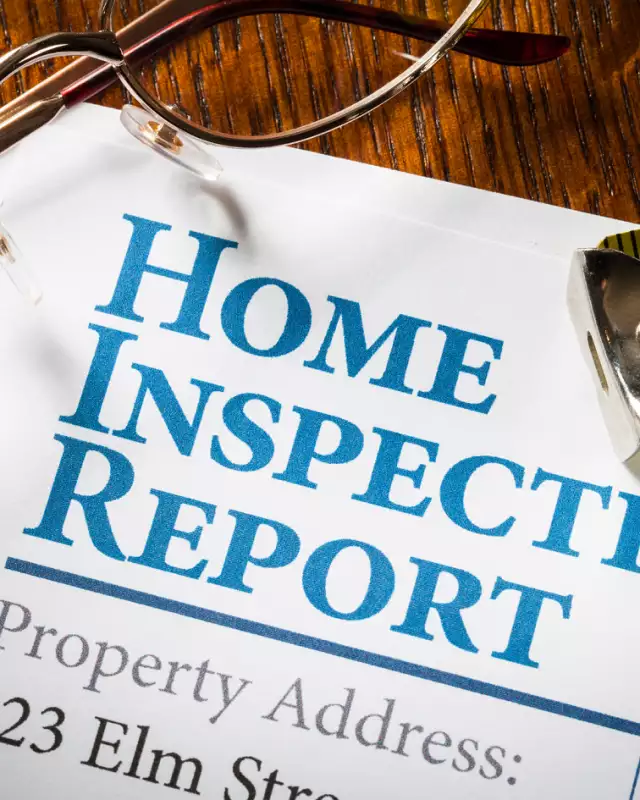The Role and Importance of a Home Inspector: Your Ultimate Guide
The Role and Importance of a Home Inspector: Your Ultimate Guide
Buying a home is a significant investment, and it's crucial to ensure that you're making a sound decision. One of the key players in the home-buying process is the home inspector. Their role is to assess the condition of a property thoroughly and provide you with valuable insights about its structural integrity, safety, and potential issues. In this comprehensive guide, we will explore the world of home inspectors, their responsibilities, and why they are an indispensable part of the real estate transaction process.
Who is a Home Inspector?
A home inspector is a trained and certified professional who evaluates the condition of a residential property. They are typically hired by potential home buyers or sellers to provide an objective and unbiased assessment of the property's physical state. Home inspectors are skilled at identifying problems, defects, and potential hazards within a home, ranging from structural issues to safety concerns. Their primary goal is to help clients make informed decisions about the purchase or sale of a property.
What Does a Home Inspector Do?
The responsibilities of a home inspector are multifaceted, encompassing a comprehensive evaluation of various aspects of a property. Here's a breakdown of what a home inspector typically assesses:
Structural Integrity: When it comes to assessing the structural integrity of a property, a skilled home inspector leaves no stone unturned. The foundation, often considered the backbone of a house, undergoes rigorous scrutiny for cracks, settling, or any signs of shifting that might compromise the building's stability. The inspector's keen eye also ascends to the rooftop, where they meticulously examine the condition of the shingles, looking for potential leaks or damaged areas that could spell trouble in the future. Moving indoors, walls and floors are subjected to thorough examination, with a focus on detecting any cracks or water damage that might hint at structural issues lurking beneath the surface. These inspections serve as the foundation of confidence for prospective homebuyers, ensuring that the structural components of the property are sound and secure.
Electrical Systems: In the realm of electrical systems, a home inspector acts as a guardian of safety and functionality. Their expertise extends to inspecting the electrical system to ensure it adheres to safety standards, guaranteeing that the property's occupants are shielded from potential electrical hazards. They meticulously assess outlets, switches, and circuit breakers, ensuring they operate smoothly and pose no risk of electrical fires or overloads. Additionally, the inspector delves into the condition of the wiring, seeking out potential fire hazards, frayed connections, or outdated components that might require immediate attention. Their mission is not only to identify problems but also to provide homeowners with the peace of mind that their electrical systems are both safe and reliable.
Plumbing: The evaluation of a property's plumbing system is a vital task for a home inspector. They embark on a journey through pipes and fixtures, meticulously checking for leaks that may lead to water damage or affect the water pressure within the residence. Every sink, toilet, and faucet is tested for functionality, ensuring that water flows smoothly and that there are no hidden defects. The inspector pays close attention to drainage, ensuring that wastewater is efficiently removed from the property. In essence, they ensure that the plumbing system is not only leak-free but also fully operational, providing future homeowners with the convenience and functionality they expect.
HVAC (Heating, Ventilation, and Air Conditioning) Systems: The home inspector's exploration extends to the realm of HVAC systems, where they scrutinize heating and cooling systems to guarantee both proper operation and safety. This entails assessing the condition of furnaces, heat pumps, air conditioning units, and the associated ductwork. Filters and thermostats are checked for efficiency and functionality, ensuring that the home's climate control is not only effective but also cost-effective. By examining these vital systems, the inspector ensures that homeowners can enjoy a comfortable and safe living environment year-round.
Appliances: A thorough home inspection doesn't neglect the functionality of built-in appliances. Inspectors examine ovens, stoves, dishwashers, and more to ensure they operate as intended. From testing temperature accuracy in ovens to assessing the cleanliness of dishwashers, these inspections ensure that essential appliances are in working order. Homebuyers can rest assured that their daily routines won't be disrupted by malfunctioning appliances when they move in.
Insulation and Ventilation: The inspection process also extends to the often-overlooked areas of insulation and ventilation. In attics and walls, inspectors assess the condition of insulation for energy efficiency, making sure homes are well-prepared for extreme temperatures. Simultaneously, ventilation systems are evaluated for proper airflow to maintain a healthy indoor environment. This dual approach to insulation and ventilation ensures that homeowners not only stay comfortable but also enjoy the benefits of an energy-efficient dwelling.
Safety Concerns: Safety is paramount in any home inspection. Inspectors go the extra mile to identify potential safety hazards, including asbestos, mold, radon, or carbon monoxide. Detection of these dangers is critical to the well-being of occupants. The presence and functionality of smoke detectors and carbon monoxide detectors are also confirmed, ensuring that early warning systems are in place to protect against life-threatening emergencies.
Exterior: Beyond the interior, the inspector conducts a comprehensive examination of the property's exterior. Siding, windows, doors, and gutters are scrutinized for signs of wear and tear, ensuring that the building envelope remains intact. The inspector diligently checks for any indications of water damage, rot, or pest infestations that could compromise the property's structural integrity. By addressing these exterior concerns, the inspector ensures that the property remains resilient against the elements and potential threats.
Documentation: Last but not least, a crucial aspect of the home inspector's role is documentation. They meticulously record their findings, complete with photographs, detailed descriptions, and recommendations. This comprehensive report serves as a valuable reference for home buyers and sellers alike, providing a clear and objective summary of the property's condition. It empowers clients to make informed decisions, prioritize repairs or improvements, and negotiate effectively in the real estate transaction process.
Why Are Home Inspectors Essential?
Home inspectors play a vital role in the home-buying process for several reasons:
Informed Decision-Making: Home inspections empower both buyers and sellers in the real estate transaction process. For buyers, the findings of a thorough inspection allow them to make informed decisions about purchasing a property. Armed with knowledge about the property's condition, they can weigh the pros and cons, accurately assess their investment, and determine if the property aligns with their expectations and budget. On the seller's side, having an inspection can preemptively reveal issues that might deter potential buyers. This early knowledge allows sellers to address these issues proactively, increasing the likelihood of a successful sale and avoiding potential deal-breakers.
Negotiation Tool: Inspection reports wield significant influence during negotiations. For buyers, these reports can be a powerful bargaining tool. If the inspection uncovers issues or needed repairs, buyers can use this information to request that the seller address these concerns or negotiate a lower purchase price to accommodate the cost of future repairs. On the other hand, if sellers are aware of these issues in advance, they can choose to address them, which can lead to smoother negotiations and potentially a higher final sale price. In cases where significant issues are uncovered, buyers may even have the option to withdraw from the deal without incurring penalties, ensuring they don't get locked into a problematic investment.
Peace of Mind: One of the most significant benefits of a home inspection is the peace of mind it provides to buyers. Knowing the condition of a property in detail, including any hidden defects or potential hazards, allows buyers to enter into the purchase with confidence. This peace of mind extends beyond the initial transaction; it helps buyers avoid unexpected expenses and surprises after they move in. They can plan and budget for necessary repairs or improvements, ensuring a smooth transition into their new home without the stress of unexpected financial burdens.
Safety: Safety is paramount in any living space, and home inspectors play a crucial role in ensuring it. By identifying safety hazards such as asbestos, mold, radon, or carbon monoxide, inspectors help guarantee that the property is safe for occupancy. This not only protects the physical well-being of the occupants but also prevents potentially costly and life-threatening issues down the road. The presence of functional smoke detectors and carbon monoxide detectors, verified during the inspection, adds an additional layer of safety and peace of mind.
Future Planning: A home inspection report is not just a snapshot of the property's current condition; it also serves as a roadmap for future maintenance and improvements. The report provides a comprehensive overview of the property's strengths and weaknesses, helping homeowners plan for necessary repairs or upgrades. By understanding the property's needs and priorities, homeowners can budget and schedule maintenance tasks effectively, ensuring the long-term health and value of their investment. The inspection report becomes a valuable tool for informed decision-making regarding home improvement projects and ongoing property management.
How to Choose a Home Inspector
Selecting a qualified home inspector is crucial to getting an accurate assessment of a property. Here are some tips for choosing the right one:
- Check Qualifications: Ensure the inspector is licensed, certified, and a member of a reputable professional organization, such as the American Society of Home Inspectors (ASHI) or the International Association of Certified Home Inspectors (InterNACHI).
- Experience: Look for an inspector with a proven track record and extensive experience in the field.
- References: Ask for references from past clients to gauge the inspector's reputation and professionalism.
- Sample Report: Review a sample inspection report to understand how thorough and detailed their assessments are.
- Ask Questions: Feel free to ask questions about their process, what they will inspect, and how long the inspection will take.
- Cost: Request a cost estimate for the inspection and compare it with other inspectors in your area.
Introducing Realiff.com: Your All-In-One Real Estate Solution
In the dynamic world of real estate, having access to a comprehensive platform that caters to all your needs is invaluable. Enter Realiff.com, the ultimate online destination for all things related to real estate. Whether you're a seasoned real estate professional or a first-time buyer, Realiff.com offers a one-stop solution to streamline your real estate journey.
What is Realiff.com?
Realiff.com is a cutting-edge online platform that brings together an extensive array of real estate professionals and services under one digital roof. It's designed to cater to the diverse needs of individuals and businesses in the real estate industry, making it easier than ever to navigate this complex and ever-evolving field.
Key Features of Realiff.com
Professionals Galore: Realiff.com connects you with a vast network of real estate professionals, including real estate agents, brokers, appraisers, property managers, and more. Whether you're looking to buy, sell, invest, or simply need expert advice, you'll find the right professional for the job.
Property Listings: Search, browse, and discover an extensive database of property listings. Whether you're in the market for a new home, commercial space, or investment property, Realiff.com offers a user-friendly platform to explore your options.
Market Insights: Stay informed with up-to-date market insights, trends, and analysis. Realiff.com provides valuable data and reports that empower you to make informed decisions in a rapidly changing real estate landscape.
Property Management: If you're a property owner or landlord, Realiff.com offers tools and services to simplify property management, including rent collection, maintenance coordination, and tenant screening.
Financial Resources: Access a wealth of financial resources, including mortgage calculators, loan information, and investment analysis tools to help you plan your real estate transactions effectively.
Community and Forums: Join an engaged community of real estate enthusiasts, where you can ask questions, share experiences, and learn from others in the field.
News and Updates: Stay in the know with the latest news, updates, and legislative changes affecting the real estate industry.
Why Choose Realiff.com?
Realiff.com stands out as the go-to platform for all your real estate needs because of its:
- Comprehensive Approach: It offers a wide range of services and resources, ensuring you have access to everything you need in one place.
- Expertise: Realiff.com collaborates with experienced and accredited real estate professionals, guaranteeing top-notch services and advice.
- User-Friendly Interface: Navigating Realiff.com is a breeze, making it accessible to both beginners and industry veterans.
- Reliability: With Realiff.com, you can trust that you're getting accurate information and trustworthy recommendations.
- Convenience: Save time and effort by accessing various real estate services and information without having to visit multiple websites or make countless phone calls.
Whether you're looking to buy, sell, invest, or simply stay informed about the real estate market, Realiff.com is your trusted partner. Discover a world of opportunities and expertise at your fingertips by visiting Realiff.com today. Your real estate journey just got easier and more efficient.
Conclusion
A home inspector is a crucial part of the home buying process, offering a professional evaluation of a property's condition. Their expertise helps buyers and sellers make informed decisions, negotiate effectively, and ensure the safety and integrity of a home. When purchasing a property, investing in a reputable home inspector is a wise decision that can save you time, money, and future headaches in homeownership.






